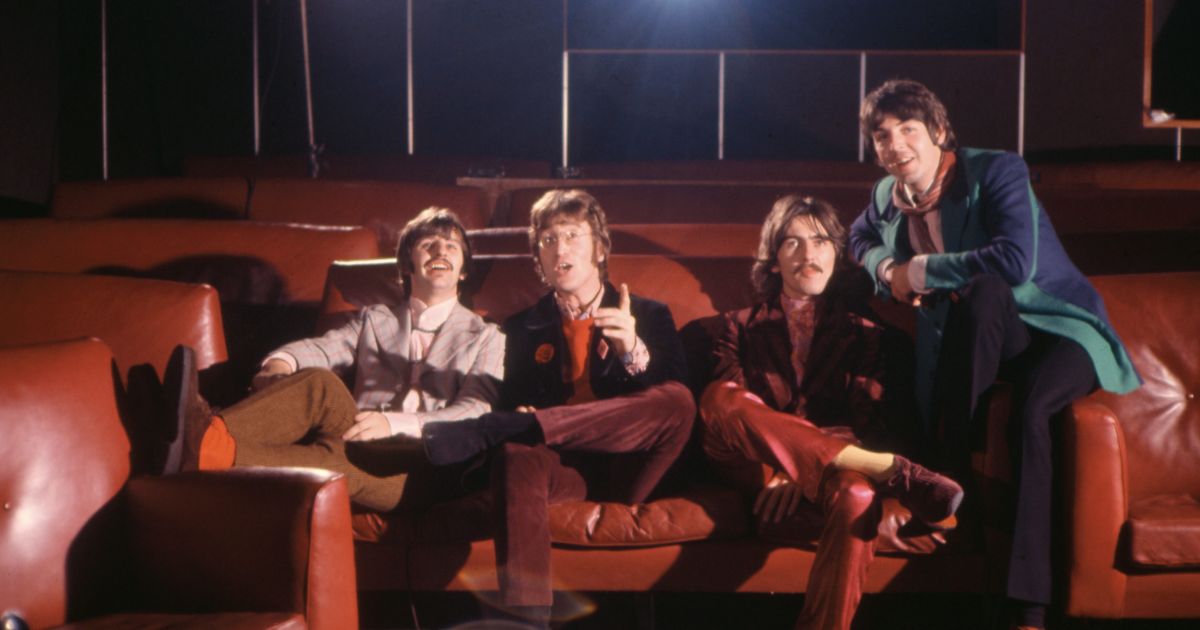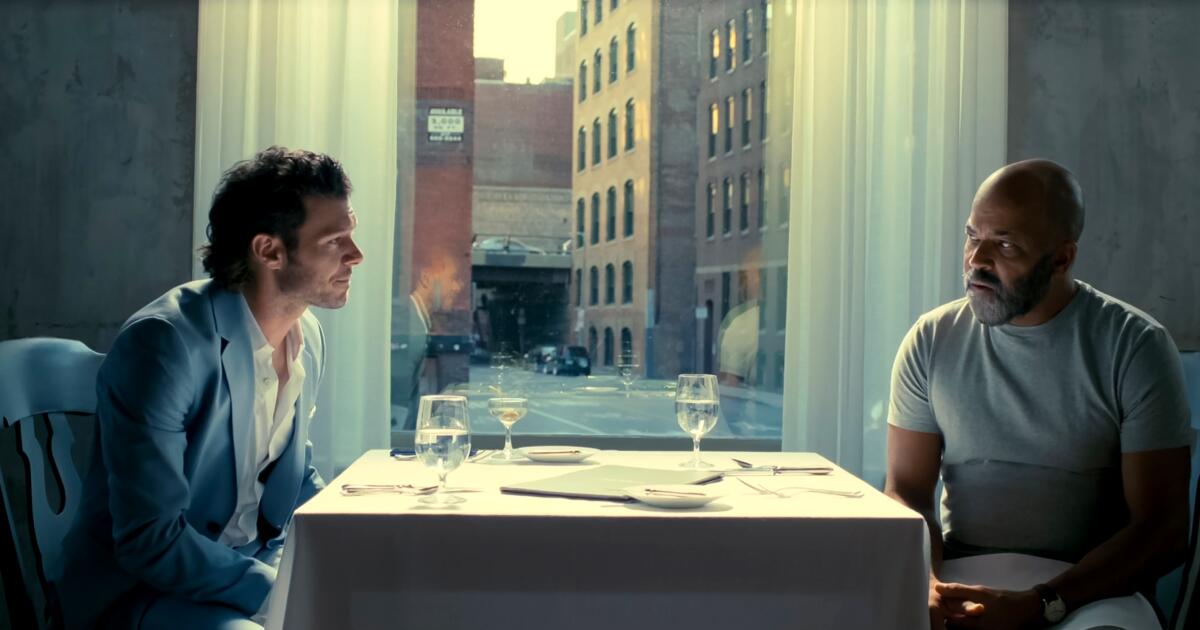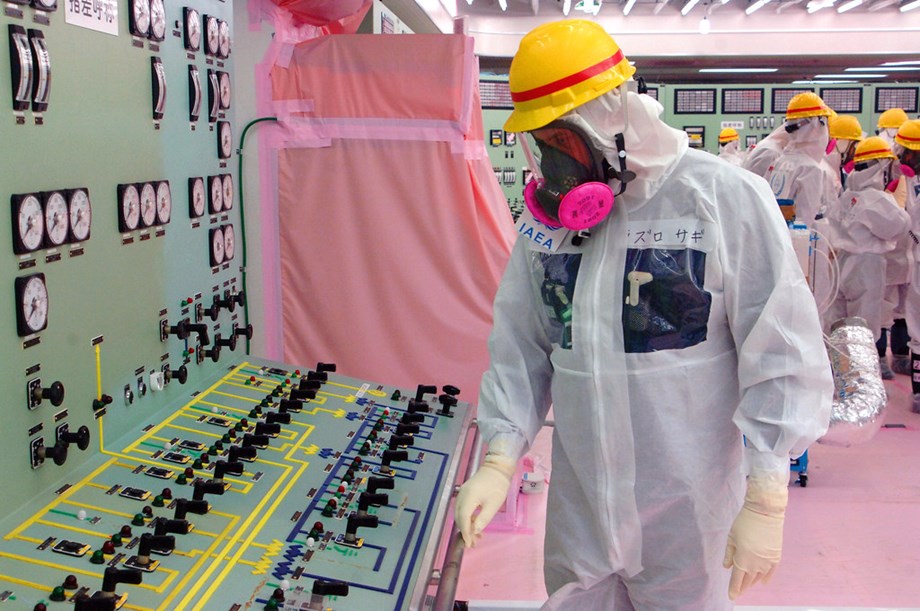
Classic Film Review: “Life is Cheap…But Toilet Paper is Expensive” (1989), restored and in-your-faceagain





Journeyman indie filmmaker Wayne Wang had already enjoyed a break-out indie hit (“Chan is Missing”) and followed it with “Slam Dance” and “Dim Sum” when he and Spencer Nakasako set out for Hong Kong in the late ’80s to capture a manic, madcap capitalist culture before the freewheeling territory was absorbed back into totalitarian China in 1997.
“Life in Cheap…But Toilet Paper is Expensive” is unlike any other film on his resume. He co-directed it with producer and screenwriter Spencer Nakasako. It came out with an X rating. “Life” has a loose narrative and a frenetic, in-your-face energy that mimics the chaotic clash of Chinese culture and unfettered capitalism. “Hong Kong,” more than one local muses (in English, or Cantonese with English subtitles), “where anything” “and everything happens.”
The film is also, and I cannot stress this enough, seriously triggering. The guerilla filmmaking crew not only stage scenes with a blind “Hong Kong (fake) Rolex” street seller (the great Victor Wong), and with a grizzled guy only credited as a “duck killer” (Wan Ken Cheng) in the aptly-named “wet markets” of the place, the perfect setting for him to mutter the film’s joke title — “Life is cheap, but toilet paper is expensive!” Wang shows us chickens and clusters of white ducks, writhing and dangling, tied in a bunch, spattered with the blood of those who have already suffered the fate that faces them.
All these decades later, that’s still pretty rough to sit through, and it scared off audiences — even at film festivals — when this dark comedy made the rounds in 1989-90.
In all the years since its release, I’ve never heard Wang explain what the poor dog running itself breathless on a treadmill (decades before “exercise” treadmills) is being subjected to. Powering a machine? Conditioned for other word? Muscled up for culinary purposes?
So there’s fair warning. If you wouldn’t see “Inside Llewyn Davis” because of what happens to the cat, move along.
Wang, like Spielberg and Lucas, has messed around with this film over the years. He had to delete Disney Mouse ears from one ironic scene thanks to legal threats. And he shot fresh footage in 1996 which he’s added to this newly-restored print being re-released by Arbelos. As I’ve mentioned in other reviews, the literary concept of a “final” version of a book, the “copy-text,” does not exist in film. Even after the director’s death, movies get tampered with.
The story — a Man with No Name (screenwriter/co-director Nakasako) who works in a San Francisco stables and favors cowboy boots, hat and bolo tie, is given a message to take to a “Big Boss” in Hong Kong. It’s packed in what was known in the day as a “drug dealer’s briefcase” — brushed aluminum, popularized on “Miami Vice” and wherever drug deals were depicted on screen.
Once in Hong Kong, he has trouble reaching the Big Boss, and even after meeting him (Wei Lo), has more trouble getting him to accept that briefcase.
Our “man with no name” (Dennis Dun provides his voice in the narration) is left with nothing to do but “explore” Hong Kong.
A subjective camera ventures into the markets, on the streets and into a sound booth at a foley studio where men do voice-looping for porn films and sound out martial arts fights. That noise Hong Kong kung fu fighters make when they throw a punch while wearing long sleeves? It’s just a guy with a pillow case, yanking and snapping it for emphasis.
Our narrator meets an aged dance teacher who randomly serves up the “rules” for success in life and encounters the Big Boss’s…mistress? Film starlet? The ill-tempered “Money” is played by Cora Miao, who is always seen in a crimson ensemble. A one-armed pianist wearing a medal pinned to his chest relates how he held onto his principles in communist China, and how that cost him that arm.
A hand is chopped off in assorted cut-aways throughout, symbolizing our narrator’s peril if he fails to fulfill his mission.
Almost everyone he meets is irritable, vulgar and coarse. Wang noticed the Chinese passion for spitting and love of the phrase “Gweilo,” which some apply to any “foreign devil” they meet.
A film lover approaches “Life is Cheap,” which I missed on first release (though God knows I heard enough about it) by marveling at the permit-free foot chase our narrator is forced to make when the briefcase is snatched. It leaves us as breathless as the (celluloid) camera operator. Wang looks in on the open-air butchery stalls and doesn’t turn away from the baleful stares of the locals who don’t know what the hell he’s up to.
As Man with No Name dances with a hooker sent to him by somebody in the Big Boss’s entourage (perhaps the ever-angry ex-Red Guard gang lieutenant), the theme music of “The Magnificent Seven” wafts into the score, emphasizing how out of place our not-a-cowboy is here, and the tectonic collision of East and West in Hong Kong has its recurring musical motif.
But despite the occasional laugh (the sound-looping sessions, etc), there isn’t much more to this than an ironic slice of life that now plays as a period piece, “Hong Kong as it used to be.” There’s ironic humor is some of the semi-random scenes — a daughter of the Big Boss pouts and lies she’s interviewed about her arranged engagement with a effete Chinese-American paleontologist.
“I’m going to help him dig up bodies,” she says, summing up her future.
The new 4K restoration plays up the lurid vitality of the life, city and people Wang was capturing.
But coherence is an ongoing issue, which might explain why Wang keeps tinkering with this picture, decades after flirting with mainstream Hollywood (“Maid in Manhattan,” “Because of Winn-Dixie”), even after returning to the indie-and-little-seen sorts of films where he got his start.
If you’re a Wang-completist, “Life is Cheap” is a must-see. For the rest of us, it’s a mildly-transgressive/still-triggering blast from the past that has lost some of its glow, if none of its mystery.

Rating: Originally an X, due to violence, graphic animal slaughter, sexual situations, profanity
Cast: Spencer Nakasako, Cora Miao, Wei Lo, John Chan, Cinda Hui, Wan Ken Cheng and Victor Wong, narrated by Dennis Dun.
Credits: Directed by Wayne Wang, co-directed by Spencer Nakasako, scripted by Spencer Nakasako. An Arbelos 4K restoration re-release.
Running time: 1:25






























































